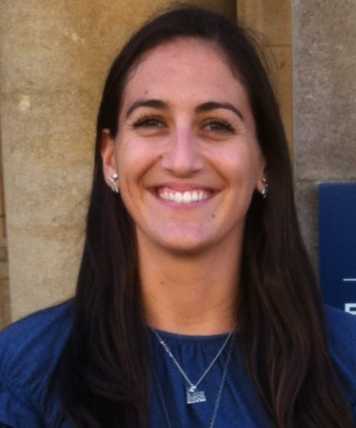Olivia Faull receives Rutherford Discovery Fellowship for research on anxiety
Dr. Olivia Faull, postdoc in the Translational Neuromodeling Unit, a joint institution of ETH Zurich and University of Zurich within the Institute of Biomedical Engineering, received a Rutherford Discovery Fellowship by the Royal Society Te Apārangi. The fellowship seeks to attract, retain and develop New Zealand’s most talented early- to mid-career researchers and support their career development by helping them to establish a track record for future research leadership.

Olivia Faull's research deals with the interplay between breathing and anxiety, aiming to understand miscommunications between brain and body, and the most effective strategies for treatment. Below she answers a few questions on current developments in her field and her future plans.
Dr. Faull, could you describe what your research is about?
When someone becomes anxious, many of the symptoms are found in their body – for example having a racing heart, sweaty palms or being short of breath. There is a growing body of evidence that the ability to accurately perceive these sensations may be compromised with anxiety, leading to a worsening cycle whereby symptoms can perpetuate the anxiety in both the mind and body. Therefore, beside strategies to assess and treat the root cause of anxiety, we also need to understand and equip individuals with the tools to manage body symptoms, as treatment for anxiety disorders is not a quick-fix and is often only effective in the short-term. My research looks at how anxiety may alter this communication between brain and body, either by changing our perceptions or our expectations. We use tests of behaviour, physiology and brain activity (via functional magnetic resonance imaging, or MRI) to identify how changes in our body and behaviour may (or may not) be reflected in the brain, and we are currently running a study with healthy volunteers to understand the range of normal brain processing of body symptoms. This next fellowship will then allow me to take these tests into individuals with clinical levels of anxiety.
Can you tell us what the impact of your research on the treatment of anxieties could be?
What we hope to achieve using this research is to be able to identify where in the communication pathways between brain and body there may be disruptions within individuals suffering from anxiety. If we can identify these breakdowns, then we will be better equipped to predict which treatments may help in the long-term for each individual. For example, if someone is prone to misinterpreting normal fluctuations in their body as symptoms, then this may enhance or trigger feelings of anxiety and panic when they occur alongside potentially stressful situations. Alternatively, if someone is unable to recognize body symptoms of anxiety early enough, then their effects (such as becoming light-headed from increased breathing) may appear to hit "out of the blue", and early intervention steps cannot be implemented to prevent a full anxiety attack. Therefore, if we are able to assess this on an individual basis, then we may be able to implement targeted treatments (alongside psychiatric interventions) that would train the specific communication deficit, aiding accurate assessment and improving the management of body symptoms to help break the loop of spiraling anxiety.
You are employed at a joint institution of ETH and UZH. Is this beneficial for your work?
It has been great working with both ETH and UZH – the support offered from each institution is different and hugely beneficial, so I feel very lucky to have been able to be associated with both. Additionally, the contact with an incredible range of fellow researchers and students across ETH and UZH has been fantastic, with really different perspectives helping to bring fresh ideas to my research projects.
What are your plans with the fellowship? Are you planning to leave Switzerland or do you want to continue your research here?
The Fellowship will be based at the University of Otago in New Zealand as of September 2020, and it is for five years. However, I will maintain close ties to the Translational Neuromodeling Unit here in Switzerland, and we will continue collaborating on a number of projects.
external page 2019 Rutherford Discovery Fellowships to accelerate research careers announced
Translational Neuromodeling Unit
Interview with Prof. Klaas Enno Stephan, leader of the Translational Neuromodeling Unit, as part of the series "Professors at D-ITET":
"The human being is always at the centre of our research"